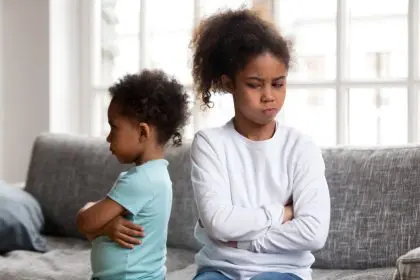The exchange of gifts during holidays represents more than just a material transaction—it’s often a tangible expression of love, thoughtfulness, and mutual appreciation. When a partner doesn’t participate in this tradition, it can trigger complex emotions and raise questions about the relationship’s dynamics.
The emotional weight of absence
Not receiving a holiday gift from your partner can feel like more than just a missing present. It often creates an emotional void that extends beyond the material aspect, touching deeper issues of feeling valued and remembered. This absence can be particularly poignant during a season when gift-giving serves as a cultural symbol of care and consideration.
The impact often feels more significant because holidays amplify our expectations and emotions. When these expectations go unmet, it can create a ripple effect of doubt, questioning not just the moment but the broader patterns within the relationship.
Understanding different perspectives
Before jumping to conclusions, it’s important to consider various factors that might influence a partner’s choice not to give a gift. Some people express love primarily through other means—quality time, acts of service, or verbal affirmation. While this doesn’t invalidate your feelings about not receiving a gift, understanding these differences can provide valuable context.
Cultural backgrounds and personal experiences also shape how people view gift-giving. Some families or cultures place less emphasis on material exchanges, focusing instead on other forms of celebration and connection. Financial constraints, though often unspoken, can also influence gift-giving abilities and choices.
The communication gap
Often, the absence of a gift points to deeper communication issues within the relationship. If you haven’t explicitly discussed holiday expectations, your partner might not understand the significance you attach to gift exchanges. This misalignment can create unintended hurt feelings and misunderstandings.
Clear communication about expectations and traditions helps prevent these situations. Partners need to share not just their preferences but also the emotional meaning they attach to certain gestures, including holiday gift-giving.
When it signals deeper issues
Sometimes, not receiving a gift can indicate more significant relationship concerns. A pattern of overlooking special occasions might reflect emotional disengagement or lack of investment in the relationship. This becomes particularly relevant when you’ve previously communicated the importance of such gestures.
Pay attention to whether this is part of a larger pattern of feeling undervalued or overlooked. Does your partner consistently miss opportunities to show appreciation? Do they dismiss your feelings when you express hurt? These patterns might suggest deeper relationship issues requiring attention.
The impact on intimacy
When one partner feels overlooked during significant occasions, it can create emotional distance. This distance often manifests in subtle ways—reduced enthusiasm for shared activities, withdrawal from emotional conversations, or decreased physical affection. The absence of a gift becomes symbolic of a larger gap in emotional connection.
Moving forward constructively
Addressing gift-giving disappointment requires careful navigation. Start by examining your own expectations and feelings. Are you more hurt by the missing gift itself or what you believe it represents? Understanding your emotional response helps frame the conversation more productively.
When discussing the situation with your partner, focus on expressing feelings rather than accusations. Use “I” statements to share how the absence of a gift made you feel, and listen openly to their perspective. This approach opens the door for mutual understanding rather than defensive reactions.
Creating new traditions
Sometimes, not receiving a gift can become an opportunity to reassess and create new traditions that better suit both partners. This might mean exploring alternative ways to celebrate holidays or finding compromises that honor both partners’ preferences and comfort levels.
Consider discussing different ways to mark special occasions that feel meaningful to both of you. This could involve shared experiences, creating traditions around quality time, or finding other ways to express appreciation that resonate with both partners.
Setting future expectations
Moving forward requires clear communication about expectations and boundaries. Discuss how you’d like to handle future holidays and special occasions, being specific about what makes you feel valued and appreciated. Remember that compromise might be necessary—find middle ground that respects both partners’ perspectives and capabilities.
Remember that healthy relationships thrive on mutual understanding and respect. While not receiving a holiday gift can feel hurtful, use this experience as a catalyst for deeper communication and connection with your partner. The goal isn’t just to ensure future gift-giving but to strengthen the overall foundation of your relationship.
This story was created using AI technology.











